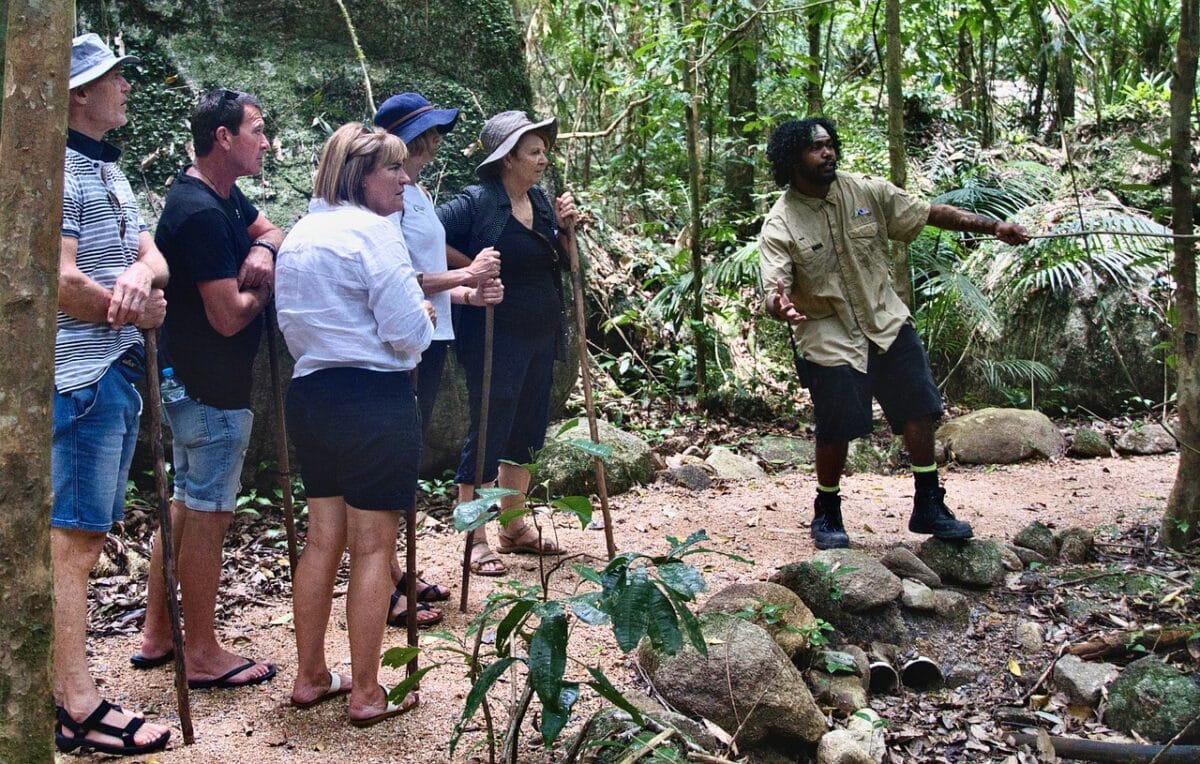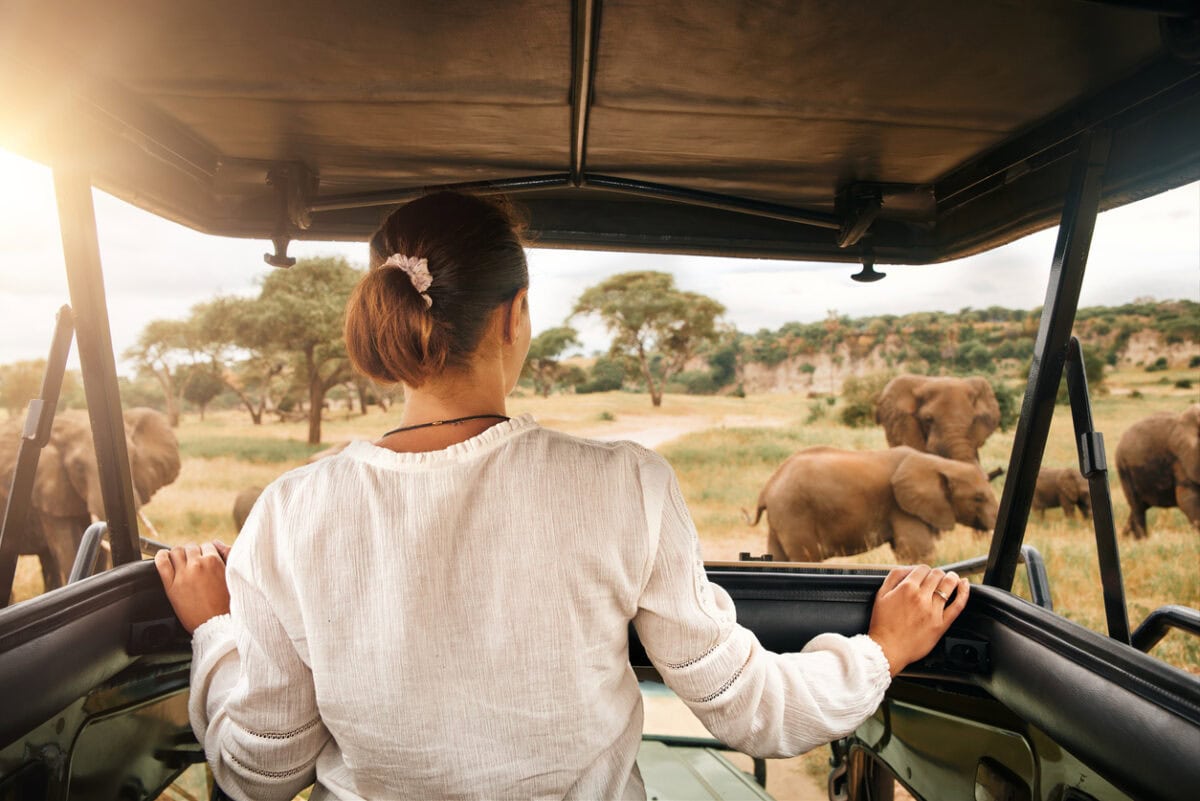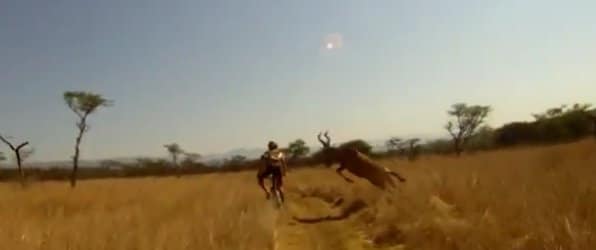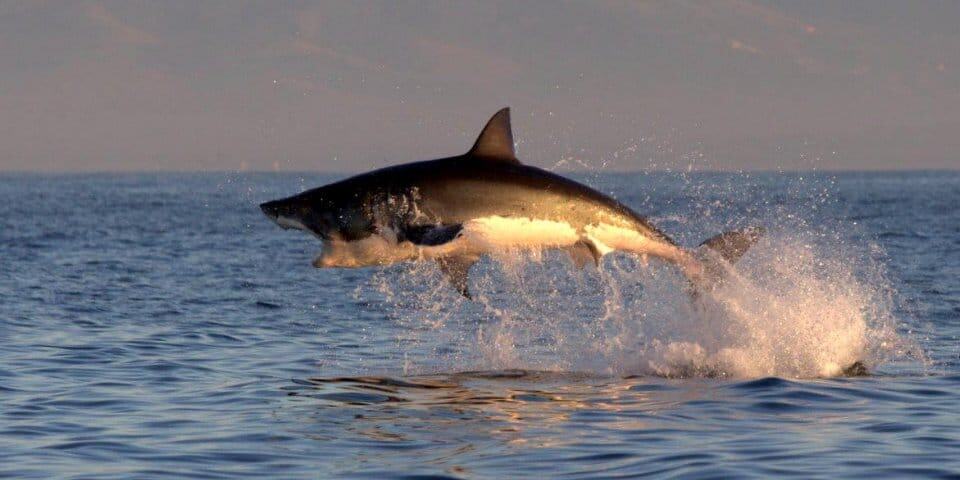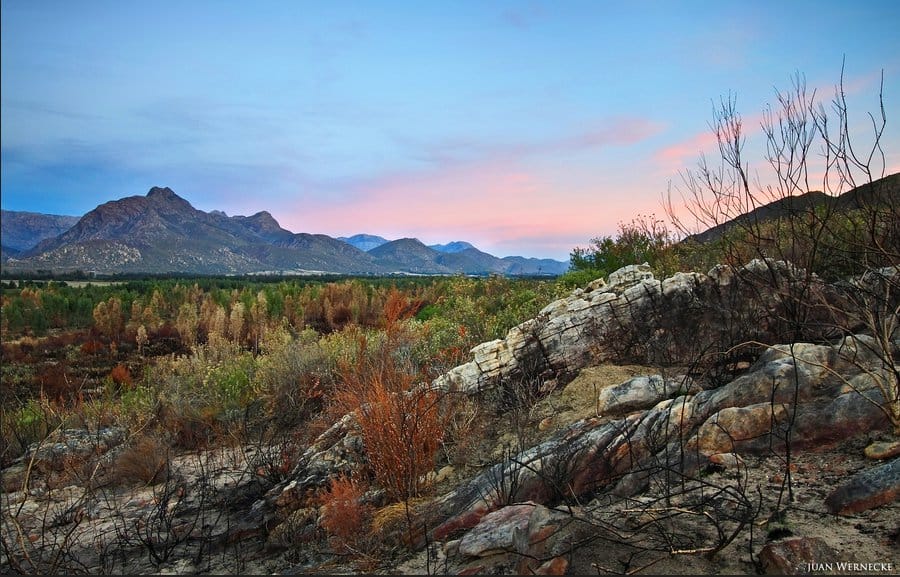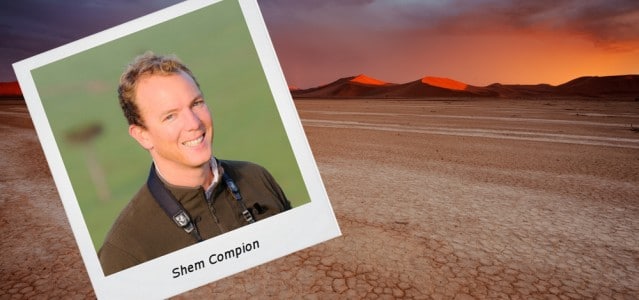Elia Edward is a safari guide in the Northern Serengeti, working for the Sayari Camp. He's also a contributor to HerdTracker's migration updates.
Category: News
FGASA Becomes Professional Body, Elevating South African Safari Guides
Becoming a field guide in South Africa is changing, with the Field Guides Association of Southern Africa (FGASA) enhancing their status.
To be in line with the South African government’s 2021 Tourism Sector Masterplan and Professionalisation Strategy, the FGASA is transitioning from a CATHSSETA-accredited training provider to a professional body recognised by the South African Qualifications Authority (SAQA).
About the FGASA: Nature Guide Training in South Africa
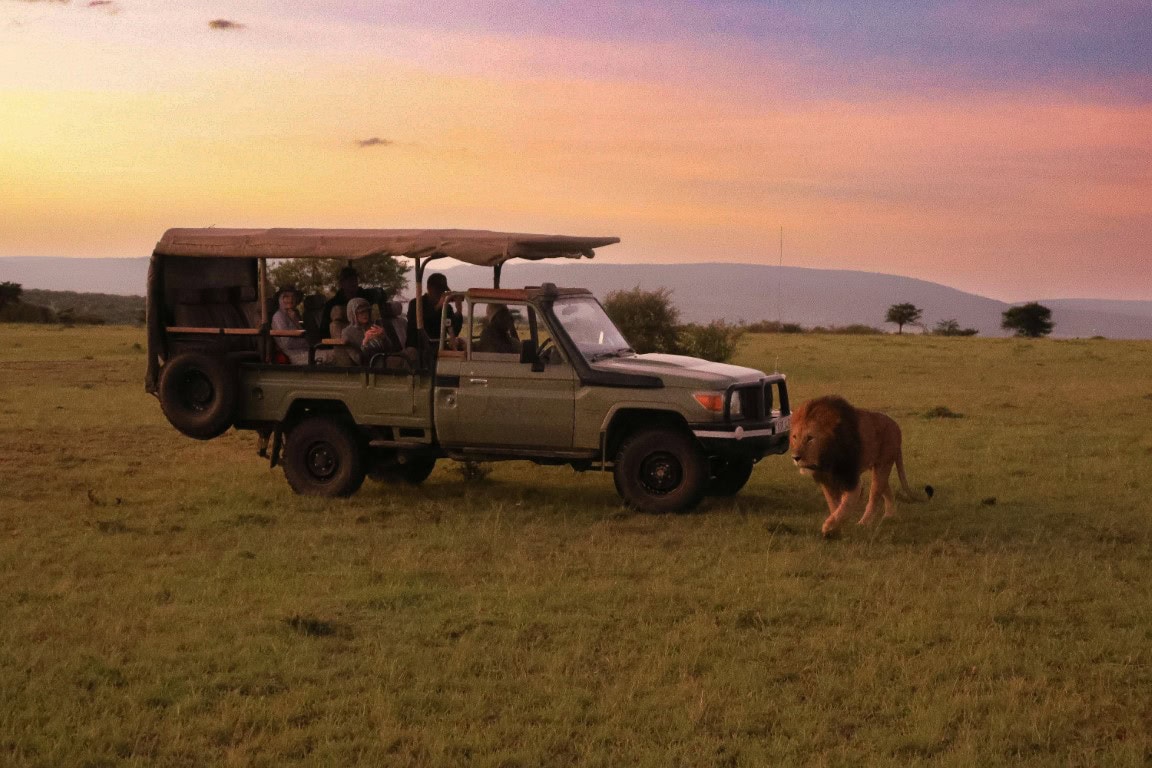
The Field Guides Association of Southern Africa (FGASA) trains aspiring nature and field guides and equips them with the necessary skills to lead the way for travellers in South Africa’s diverse ecosystems, including the country’s stunning safari destinations.
A FGASA qualification is based on the highest standards of professionalism in tourist guiding. From safari and cultural tourism to marine and astronomy tourism, this association is at the forefront of training professionals in the travel sector.
Since the early 1990s, the FGASA has trained over 40,000 field guides, establishing itself as a crucial player in the world of nature guiding.
Field and nature guides play a crucial role in South Africa’s tourism industry. When you go on a safari, you’re relying on the safari guide’s knowledge and professionalism to get you to the best sightings possible and captivate you with interesting facts about the fauna and flora you see. FGASA wants to make sure that visitors get the best safari guides in South Africa.
The Impact of FGASA’s Professional Status on South African Safaris
This significant transformation of FGASA into a professional body recognised by the qualifications authority is set to formalise standards and grow the tourism sector in South Africa.
“By professionalising this sector, we’re not only supporting the guides but also contributing to the overall growth and competitiveness of South Africa’s tourism industry,” says FGASA Managing Director Michelle du Plessis.
This shift also aims to better represent the interests of field guides and advocate for their professional development, ensuring that the industry’s needs are continually met.
Part of this transition will see FGASA cease providing entry-level accredited programmes by mid-2026. Aspiring field guides will need to obtain qualifications through the Quality Council for Trades and Occupations (QCTO).
As this shift progresses, FGASA will complete the registration process to become a professional body with the SAQA and enter a new chapter in its stellar story. This will bring the field guide profession in South Africa in line with other recognised professions and ensure a greater number of highly skilled professionals in the tourism sector.
Africa Hits Full International Tourism Recovery, as Seasonality Shift
International tourist arrivals to Africa have exceeded pre-pandemic levels for the first time in the first quarter of 2024. The latest UN Tourism Barometer data shows that while the continent was one of the hardest hit during the pandemic, its tourism sector has seen a stronger-than-anticipated recovery, overshadowing the rate of recovery for international markets.
Visitors to Africa exceeded pre-pandemic levels by 5% in the first quarter of 2024, compared to quarter one in 2019, with a 13% growth more than in Q1 2023. Long-haul travel to North Africa’s Egypt and Morocco and safari hotspots like Tanzania, Kenya, and South Africa safari continue to pique the interest of international travellers.
Several African destinations reported growth in international tourism receipts in the first quarter of 2024 compared to 2019. Tanzania saw a 62% increase, Mauritius 46%, and Morocco 44%, highlighting the continent’s significant contribution to global tourism recovery. 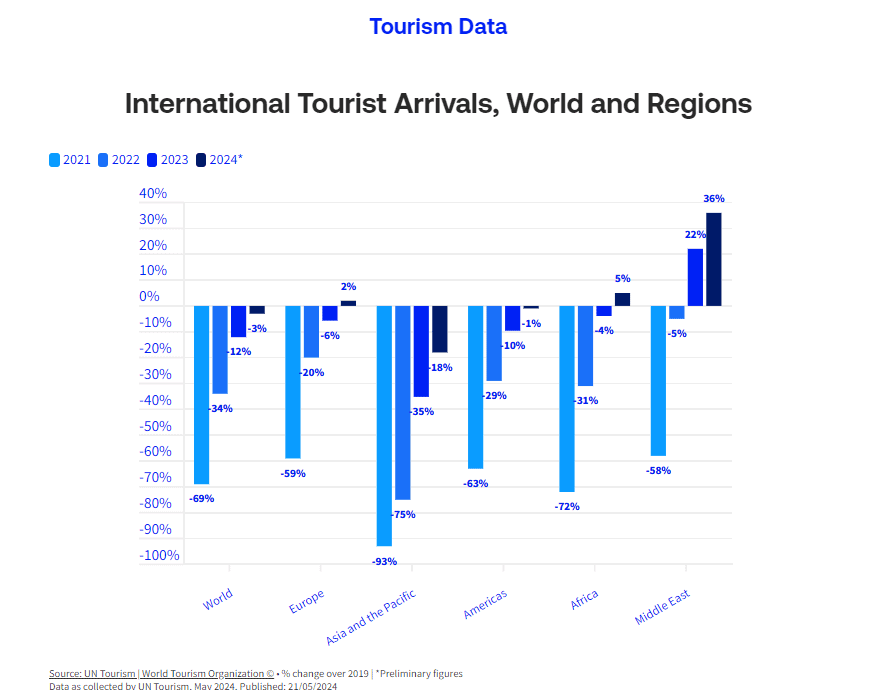
South Africa’s Tourism Confidence Spotlighted
South Africa has further top African country rankings in the 2024 Travel and Tourism Development Index (TTDI) by the World Economic Forum. In 2023, South Africa welcomed close to 8.5 million international visitors, of whom 6.4 million were from the African continent. This represents a significant increase of 48.9% compared to 2022 arrivals. During the first quarter of 2024 – January to March – South Africa welcomed 2.4 million visitors from the rest of the world, a 15.4% increase compared with the same period in 2023.
Africa continues to lead as the key inbound market with 1.8 million tourist arrivals from the rest of the African continent between January and March 2024, representing 74.5% of all arrivals. South Africa’s rise in the 2024 Travel and Tourism Development Index, moving up seven places, weighed the country’s strengths in price competitiveness, Information and Communication Technology (ICT) readiness, natural resources, and the socio-economic impact. Tourism Minister Patricia De Lille commenting in a statement about the Index ranking said, “We remain committed to significantly increasing arrival numbers and enhancing the tourism sector’s performance. While the sector already contributes substantially to our GDP and job creation, there is much more potential to unlock.”
Confidence in the growth of international tourists to South Africa remains high, according to Discover Africa Safaris co-founder Andre Van Kets. “Safari operators are seeing serious intent from key international markets to book and plan transformational travel experiences. Following Africa’s recent Travel Indaba word from suppliers is that rate increases for 2025 are averaging at 10%, and while this is in line with inflationary adjustments currently at 7%, it shows further confidence that the luxury safari sector remains bullish for future bookings.”
The head of product at the online travel planning company, Murielle Vegezzi, underscored the continued changes to seasonality and how that will drive growing tourism numbers across the continent and the world. “Seasonality is changing, and we’re definitely seeing that. Bookings are no longer concentrated in the peak periods, which further shows the intent to travel is high, even during the off-peak or shoulder seasons,” said Vegezzi.
Growth in International Markets for South Africa
- Americas tourist arrivals grew by 12.4% compared to the same period in 2023: 118,194 (January to March 2024)
- Europe tourist arrivals grew by 8.6% compared to the same period in 2023: 420,727 (January to March 2024):
– United Kingdom: 125,420 tourists (+5.3% growth)
– Germany: 98,954 tourists (+9.9% growth)
– Netherlands: 37,548 tourists (+9.9% growth)
– Russia: 9,329 tourists (+9.6% growth)
- Asia Tourist arrivals grew by 25.4% compared to the same period in 2023: 49,741 (January to March 2024):
– China: 11,017 tourists (+82% growth)
– India: 16,209 tourists (-0.9% growth)
- Middle East:
– Saudi Arabia: 2,387 arrivals (+31.7% growth)
– United Arab Emirates: 321 arrivals
Cyclist wiped out by a hartebees
Sports injuries are fairly common. With a football to the face, boot to the crotch and face planting into a balance beam, you thought you'd seen it all, until now… Mountain biker, Evan van der Spuy of Team Jeep South Africa, was trampled by a galloping red hartebees while participating in a mountain bike race in Pietermaritzburg, KwaZulu Natal.
A 17-year-old's “collision” with the hartebees became one of the most searched topics on the internet. More than 5 million people have searched this collision. Evan said he is still overwhelmed by the attention he is suddenly getting. He attended a mountain bike race at Albert Falls Dam when the buck went for him. “Its taking time to sink in and I'm trying to process it. Our phones are ringing non-stop for interviews” he told Die Burger.
The young mountain biker said he is still suffering from a stiff neck. “It hasn't put me off whatsoever.” Both Evan and the buck have escaped unhurt.
Meanwhile, Trish Wilson, who also attended the race at Albert Falls Dam, complained about the representation of a “defenceless animal”, Die Burger reports. She said it looked like the animals were alarmed because “the park were full of people”.
The organiser of the race, Max Cluer, referred to the incident as a freak accident and unique of its kind. It was a question of being at the wrong place at the wrong time. “It was against nature in nature.” Cluer said 99,9% of the reaction on YouTube is positive.
The TV channel National Geographic is also interested in the video for Caught in the act, a new TV series which focuses on the bizarre footage of the wild.
“They are speechless and say they have never seen something like this before. They also want to use it for research,” Cluer said.
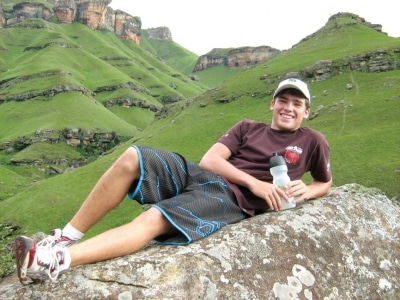
Photo of Evan van der Spuy from The Witness
Chumming for shark: Interview with Rob Lawrence
Chumming for shark for commercial shark cage diving is a highly controversial subject, with shark attack victims on the rise. The media is flooded with negative connotations associated with chumming for shark, so Dalene Ingham-Brown interviewed Rob Lawrence, owner of Cape Town based African Shark Eco-Charters, to gain insight into a pro-chumming mindset.
Pro-chumming for shark interview with Rob Lawrence:
Dalene: Why do you think people are against chumming?
Rob: People don’t know what goes on, on a shark cage diving trip where chumming for shark is involved. The media is swamped with negative opinion towards the subject. There is a great misconception about chumming. People seem to think that we put pigs blood and mammal blood in the water to attract sharks; that isn’t the case. We use snoek, skip jack and whatever other fish bait is available at the time. I’ve found that most people against chumming, haven’t even been on a shark cage diving trip before. Those who haven’t been on a trip with us before don’t know exactly what happens, how much we use, and what we use; of course they will be against chumming.
Dalene: Do you think putting up shark nets to prevent shark attacks on humans is a good idea?
Rob: I understand that the exclusion nets to be put up in False Bay will be an experimental project, however if it is run properly It could be beneficial for both sharks and humans. It is working well in KwaZulu Natal, hopefully it will work for us too.
Dalene: Does chumming for shark have an effect on shark attacks on humans?
Rob: No.
Dalene: Do you think the daily restriction of 25 kg of bait per day is reasonable for shark chumming?
Rob: Yes, it is a reasonable amount. Often I don’t even use that much when I go out for the day. It’s not like we go out with 25 kg of bait and come back with empty buckets.
Dalene: Do you think the mass chumming for Ocearch’s film-making in False Bay had an effect on the Kogel Bay shark attack?
Rob: No I don’t. If I’m not mistaken, the attack happened 3 days after the chumming for shark took place. I’m not involved in the Ocearch project so I cannot give information on the exact particulars of the project.
Dalene: Do you think that shark cage diving chumming leads to sharks associating food with humans?
Rob: You can’t condition sharks to think like that. If it were that easy to condition sharks, I wouldn’t have to close my business for a good few months of the year. Sharks have cycles, they are either there or they aren’t. They may associate boats with food, but to say that sharks associate humans with food is quite a far stretch of the imagination.
Dalene: Do you have any suggestions for preventing shark attacks in False Bay?
Rob: Well, I think the Shark Spotters have been great in reporting on shark movement. Swimmers and locals should follow the Shark Spotter program, take advice from local law enforcement officers when warned about shark activity, and they should just use their common sense.
Dalene: Why would you say shark attacks in False Bay are on the increase?
Rob: It seems to be a global trend and not just happening in False Bay. Whether it is because of environmental issues, or whether it is just because there are more people in the water, we can’t be sure.
Comment below: What is your opinion on chumming for shark and shark attacks on humans?
Chumming for shark with Rob Lawrence:
About Rob Lawrence:
Rob Lawrence is the founder of African Shark Eco-Charters. Working in the industry since 1992, Rob has acquired great experience and knowledge surrounding the behaviour of the great white shark. His passion for these misunderstood animals is what drives him, dedicated to informing, educating, and empowering individuals by sharing his knowledge.
Creating worldwide awareness from Cape Town, over the years, Rob has worked closely with film production companies like Animal Planet, BBC Wildlife, National Geographic and Discovery Channel.
POST UPDATE: 15 MAY 2012
Below, Zapiro (one of South Africa’s most popular and leading cartoonists), creates a sketch focusing on the controversial issue of chumming for shark for the pleasure of commercial tourism.
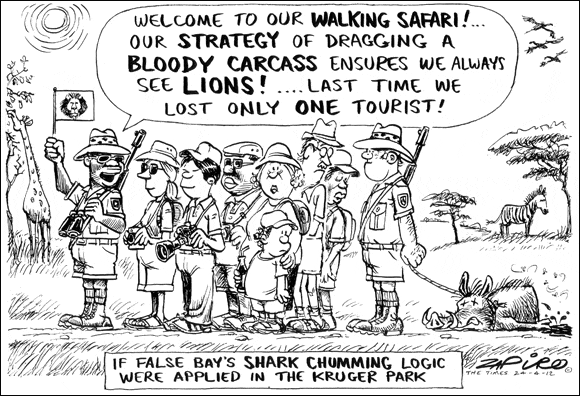
Cartoon description and background:
With the raging debate about Shark chumming on radio and social networks and the recent death of a well-known body surfer in False Bay (Cape Town), Zapio’s cartoon equates the logic of shark chumming to the Kruger Park.
Interview with landscape photographer Juan Wernecke
Specialising in landscape photography, Juan Wernecke is an extremely talented photographer living in South Africa. His passion for photography feeds his ability to share a visual representation of the way he sees the world. Striving to skillfully capture every inspiring scene and moment thereby expressing himself through his work, Juan aims to celebrate photography, one shutter blink at a time. In this interview with landscape photographer Juan Wernecke, meet the man behind the lens.
Meet Juan Wernecke in the interview below
1. When did you first pick up a camera?
The most significant time was when I went to Bali & Singapore in July 2009. Singapore is very well known for its electronics and being a gadget person, I walked into an electronics store in Orchard Street.
Next thing, I found myself in the camera section, holding a DSLR, convinced I needed one. The idea was striking, and seeing as I had always done art and enjoyed capturing memories, the camera had to be mine. Afterall, I was in a foreign country and wanted to capture high resolution images.
2. What kind of photography do you most enjoy?
I have to say that I enjoy capturing scenic and nature images the most. I love being in nature – it makes me happy to be alive. I enjoy each location, capturing the way I see things and creating a unique, exquisite memory and experience. I like to hear the crickets, the peace and quiet, to hear the roaring waves break against the rocks, to hear the birds tweet and to watch and appreciate the view that I am capturing. I have a great passion for scenic photographs.
3. What is the simplest thing that has ever inspired you?
I would say the natural beauty of South Africa. I have travelled internationally quite a bit and I can honestly say from experience that South Africa is one of the most beautiful places in the world. I have a weakness when it gets to nature and scenic locations. I tend to stop and admire the view more than the average person does. It makes me respect the environment more.
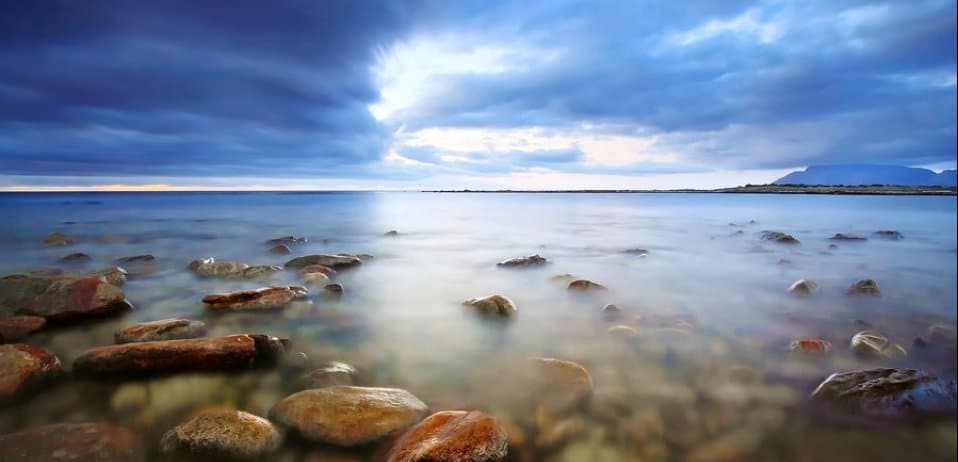
4. What is the most important thing you’ve learned through photography?
One of the main things that I learned was that in photography, you never stop learning. A few years back, I thought that I knew everything when I started to do HDR images. One guy approached me and suggested I look at Tony Kuyper’s site, that it would improve my work. I took this as a insult back then. I thought that I never needed any help and that my work most certainly does not need any improvement. I carried on with my images.
Two years later. I was inspired by an international photographer. I asked him what his secrets were and he referred me back to the same Tony Kuyper I’d been referred to several years ago. That’s when I bought Tony Kuyper’s books and started learning a whole new division of photography. It opened my eyes to how little I actually knew at this stage.
5. What is your biggest pet-peeve as a photographer?
There are many new photographers who own a DSLR and simply call themselves professional photographers. I believe status comes with experience, not with the equipment that a person owns.
Most of these new photographers host workshops or cheap shoots; thereby stealing business from other photographers.
I don’t do any wedding or portrait images, but I have heard that new photographers charge R500 for 50 images. The professional photographer would ask anything from R1,300 – R3,000 for one shoot. This might sound expensive, but a professional photographer still has to process and print each image which can take up to a week. Does R500 for a week’s work sound good?
They do themselves in, and they steal other photographers’ bread and butter. There is no such thing as a cheap shoot. Do you want quality images or average photographs?
6. What’s the dumbest question anyone has ever asked you about photography or your work?
I think it has to be:
- Does your camera make you a better photographer?
- Can you teach me how to take photos for free?
- Can I get a discount?
7. If there was one location in Africa you could go to take photographs, where would it be?
There are so many places! I think my first choice of location would be Namibia’s Namib Naukluft, Sossusvlei. Next on the list would be Augrabies Falls, Seychelles, Kubu Island, Magoebaskloof, Blyde river canyon, Drakensberg, Dwesa Nature Reserve, Whole in the Wall, Tsitsikamma National Park, Kogelbaai, the Karoo (for the lightning storms) and the Cederberg.
8. What is the most unusual thing you have seen through your lens?
I haven’t seen many unusual things before, I think the strangest thing I have seen was a shipwreck on Clifton beach earlier this year. Many photographers gathered together to capture this scene while the police tried to get us off the beach as soon as possible.
We were prohibited from taking photos of the ship at all times, day and night. The police threatened to take away our equipment if we continued to shoot. It was probably one of the most horrific, yet beautiful and usual things that I have ever seen before.
I got my shot in though. The Japanese fishing trawler washed up with all its men onboard for several days and these men did not leave their ship for nearly 3 days. The sun had just set with all the moody, dramatic clouds in the background, and I saw the boats’ reflections on the water, the fierce waves crashing against the trawler. The whole scene was something new to my eyes; it was so tragic, yet so beautiful seeing such a large boat on such a small beach under moonlight.
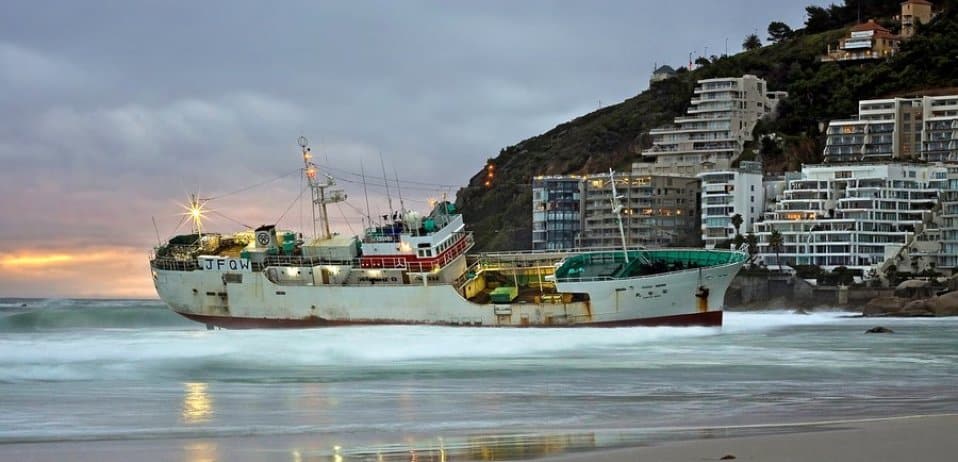
9. Have you ever been in an unsafe place or situation to shoot a brilliant photo?
All the time! I stand on unstable structures, slippery rocks and on the edge of cliffs to get winner images.
I did a cover shoot for a magazine a few months back in Kleinmond. On our way there, we pulled over in Kogelbaai to admire the view. One moment I was taking a few scenic shots and the next I was hiking down the mountain to get a better shot. I stood on a ledge over a 100 m drop onto sharp rocks and rough seas to capture one of my best images yet. It was quite an adrenaline rush, the winds were super strong on this winter’s morning. If I had fallen…
The waves gave off a scary roar, unlike any roar I have ever heard before. I don’t think I have experienced waves of that size before. Just the sound of the roar intimidated me as it was. I couldn’t wait to get to safety but I couldn’t leave the scene either, I was so excited with the results but fearing for my life at the same time.
10. Are you actively involved in any photography communities online?
I decided to create a group on Facebook called South African Photographers; a group with nearly 400 members across South Africa. In this group, I teach individuals what I know. It’s my way to contribute to the community. I am always open to learn as well as teach others. Shortly after I opened my group, I was contacted by Danie Bester; the owner of Digital Photo Critic as well as Louise Donald from PiX magazine. I was asked to be website administrator on both those sites. It’s on those sites that I give critiques on images, give each photographer constructive advice and write tutorials for these sites in order to improve photography in South Africa. I also feature the best images on these websites. PiX magazine has nearly 7000 members throughout South Africa and Photocritic, 2000 members. I think the main lesson I would like to share is that those with a passion for photography should always aim to learn new things. Information is free and everyone has the ability to become a phenomenal photographer, whether you would like to do it full time or just as a hobby.
11. Complete this sentence: Because of photography…
Because of photography, I look at the world with different eyes, I appreciate life more than ever and I have grown a soft spot for nature and scenic places. I have learned to enjoy life and make every second count; live life like it’s your last day and appreciate everything around you. It’s opened my eyes on so many levels imaginable.
12. Where do you find are good places for aspiring and pro-photographers to place their work online?
This is a tricky question. I have my work posted on several websites such as Istockphoto, Getty Images, DevianArt, Flickr, Myshutterspace, outdoorphoto, PiX magazine, 365 project, Pixoto, Digital Photo Critique, 1X, Fotoskool, South African Photographers, as well as many Facebook photographic groups. I actually created a group on Facebook called South African Photographers with nearly 400 members in it. With all these websites, users (or should I say photographers) upload images, people give constructive feedback and tips so the user can improve their work.
I am always keen to learn, and share the knowledge I’ve acquired.
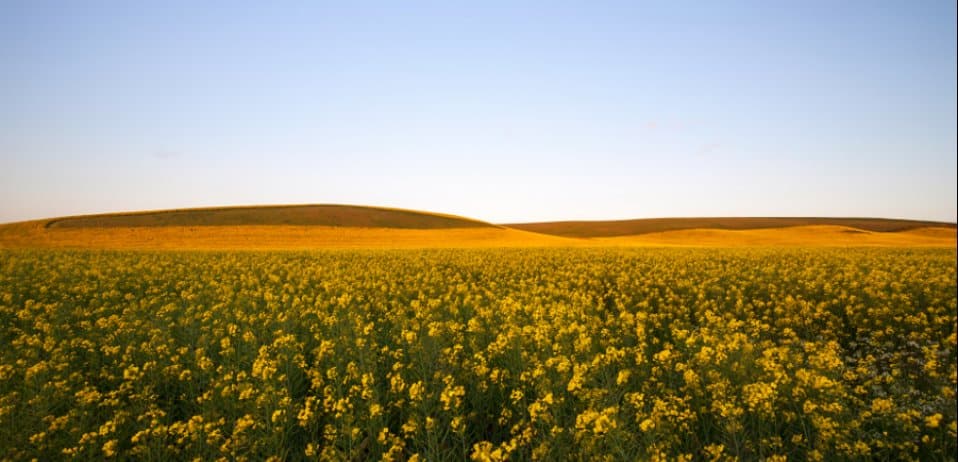
How to compare and buy travel insurance
In a time when travellers are paying higher ticket costs and baggage fees, adding travel insurance onto the cost of a trip can seem like just another expense. The truth is that travel insurance is very inexpensive for the protection and assistance you get with it.
Benefits of obtaining travel insurance
#1 You won’t lose your trip investment
No traveller can predict exactly what will happen between now and when they return home. If someone gets sick, a parent dies, a traffic accident happens, or any of a number of things occur, you could have to cough up loads of money. With the right travel insurance plan, you’ll be reimbursed for your pre-paid non-refundable trip costs if you have to cancel your trip before leaving or abandon your trip and return home.
The following are just a few reasons travellers have to cancel or interrupt their trips:
- Injury or illness of you, a travelling partner or a family member.
- Bad weather or natural disasters that destroy your destination accommodation or your house back home.
- Traffic accidents that occur en route to your scheduled departure.
- Work or schedule conflicts including work transfers, court summons, terminations, or work schedule changes.
- Labour strikes and financial default that disrupt flights and leave travellers stranded.
- Terrorist attacks and mandatory evacuations. With adequate travel insurance, if you experience a situation that requires you to cancel your trip prior to departure or abandon your trip and return home post-departure, you’ll be reimbursed for all of the unused trip expenses you insured.
#2 You won’t have to pay for unexpected medical care
We’ve all read stories of travellers who were injured or got sick while travelling. When a traveller is in a foreign country, their health insurance from back home doesn’t usually extend to paying foreign hospitals and doctors.
If you, or someone travelling with you, gets sick or injured and needs medical care while you’re travelling, your travel insurance provider will help you find emergency transportation and local medical care. In most cases, they can arrange for payment to be made directly to the medical providers too. They also have experts on hand who can provide translation services if you are unfamiliar with the local language.
If you have a pre-existing medical condition, your travel insurance assistance service team can work with your doctors back home and help coordinate your care. In addition, they’ll inform your family and business associates of your condition while keeping track of your progress.
#3 You can be evacuated out of danger
There are many reasons that travellers have to be evacuated: to escape terrorist attacks, impending hurricanes, or when they are so badly injured that local medical care can’t provide adequate treatment.
A travel insurance plan with medical evacuation coverage helps a traveller by arranging and paying for safe transportation to a medical facility that can treat their condition. In addition, this coverage typically pays to bring a family member or friend to the traveller’s bedside as well as transporting you back home when your recovery is stabilised.
If the worst should happen and you die on your trip, this coverage also provides money and co-ordination for repatriation – that is, the proper return of your body to your home. In some cases, repatriation can take tens of thousands of dollars and leave family members struggling to negotiate complicated transportation regulations through their grief. An adequate travel insurance plan can save your family from all that.
#4 You can buy travel insurance for special circumstances
Travellers with special circumstances often think they can’t get travel insurance, but it’s not true. Travellers can get coverage for all kinds of special situations and activities, including:
- Coverage for travellers with pre-existing medical conditions.
- Coverage for travellers who like to go rock climbing, diving, hang-gliding, white-water rafting etc.
- Coverage for travellers with young children (even grandchildren)
- Coverage for travellers headed to unsafe areas of the world. For just a little extra money, travellers with different needs can get adequate travel insurance.
#5 Other benefits of travel insurance
Many travel insurance plans include additional benefits that include:
- Assistance recovering from lost or stolen passports and identity theft.
- Help with missed connections and travel delays.
- Coverage for car rentals and roadside assistance.
- Assistance when your baggage is lost, stolen or delayed.
- Accidental death and dismemberment and flight accident benefits.
- Concierge and business assistance services. Not every plan includes all of these and every plan will have different levels of coverage and limits.
Now that you realise how important and simply travel insurance is, you can now visit the best places in Africa without a care in the world.
Interview with nature and wildlife photographer Shem Compion
Have a look at our featured interview with celebrated nature and wildlife photographer Shem Compion. He tells us about his passion for wildlife photography, where he draws his inspiration from and some of the challenges he’s faced as a professional nature and wildlife photographer.
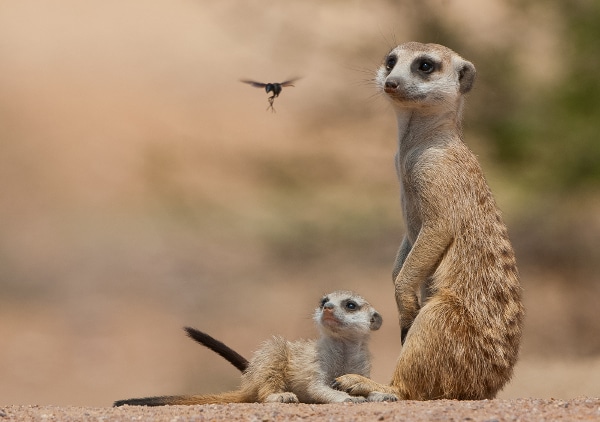
Above: A hornet flies past two very mesmerised meerkats in the Kalahari.
1. How did you get into photography?
I have always had a love for nature. I even studied it at the university. When I picked up my camera it was inevitable that I would combine the two, which is exactly what happened.
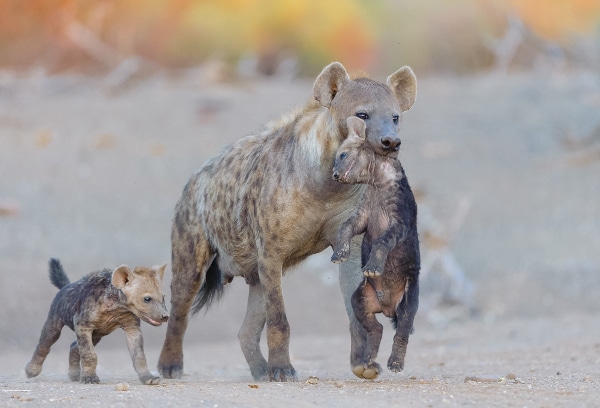
Above: A mother hyena carries her young while the older pup struggles to keep up.
2. What kind of photography are you most passionate about?
Nature and wildlife are truly the two aspects I feel most passionate about. When I’m placed in an environment where these two elements are present I can really feel my photographic/creative side emerging.
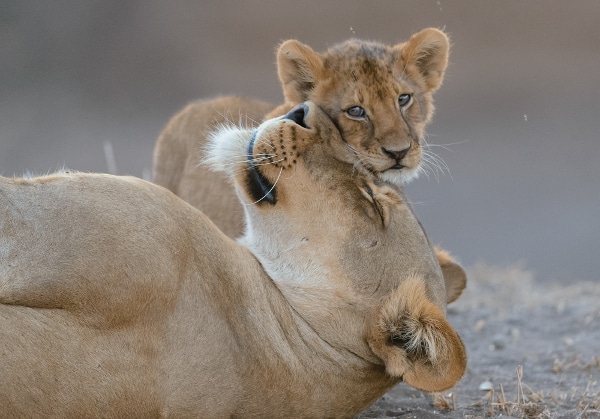
Above: A young lion cub greets its mother in a show of affection that imprints a special bond between the two.
3. What do you draw your inspiration from?
I draw inspiration from being surrounded by nature. The calmness and the vastness of the true wilderness makes me want to capture them to the best of my ability. Observing the work of the photographers I grew up admiring also inspires me. Seeing what those photographers did with hardly any equipment makes me realise how hard I still have to work. This is quite a driving force for me.
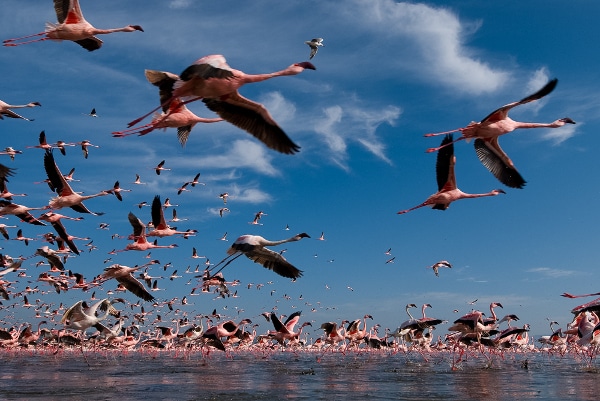
Above: Flamingoes fly over the shores of Lake Nakuru; covering the sky in a wash of beautiful pink.
4. How would you describe your photographic style?
I don’t consider myself as having any kind of specific photographic style; instead, I try to concentrate on taking the best photograph each and every time. It seems to be working as I’ve received numerous awards in a number of nature and wildlife categories.
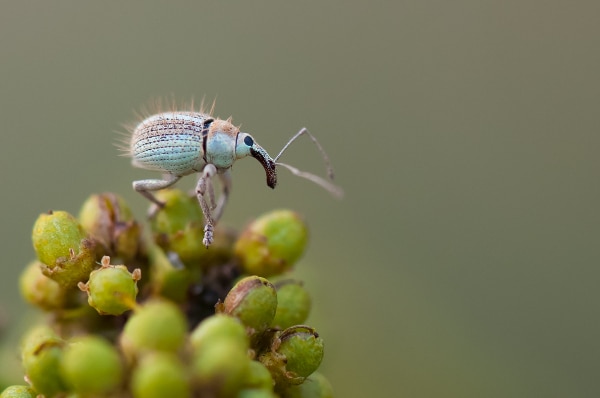
Above: A tiny, but beautiful weevil clings to a flower bud at the start of summer.
5. Are you a traditionalist who occasionally uses film or have you gone completely digital?
For work, I use digital cameras. When I play around with old cameras I use film.
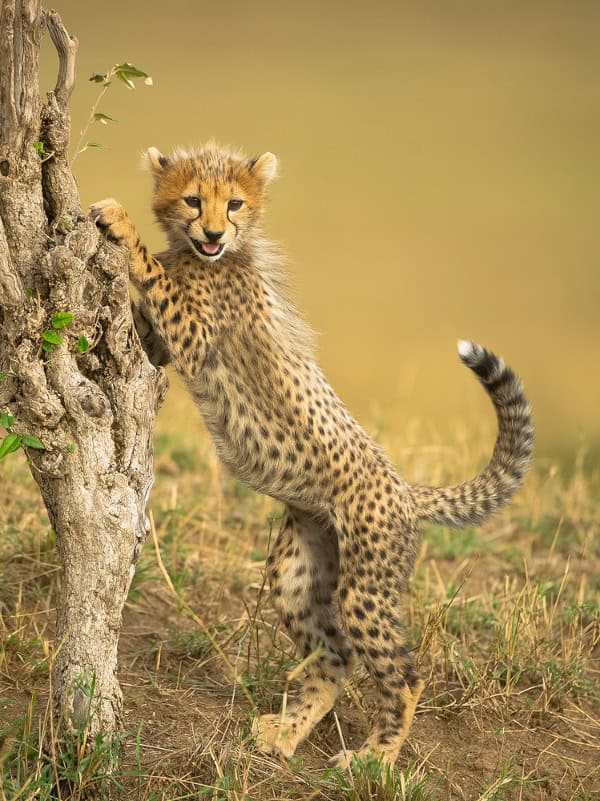
Above: A young cheetah cub investigates its surrounds as an act of learning.
6. What advice do you have for aspiring photographers?
Get out there and enjoy the medium for all it can offer. Don’t worry too much about equipment; rather focus on the results that you are getting. Always try to improve on your photography by coming up with new and creative ideas.
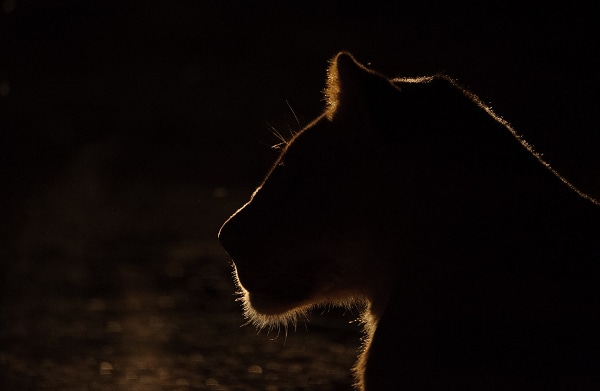
Above: A light outlines the profile of a lioness in the evening, alert and just about to head off to hunt.
7. What are some of the greatest challenges you’ve had to face as a photographer?
My greatest challenge up to this point has to be the photo market crashing. Stock images went from $500 an image to $5 an image. This affected practically all photographers and everyone had to find some way to reinvent themselves. I personally went the route of photo workshops and tours, which is great because I interact well with people and I love to travel.
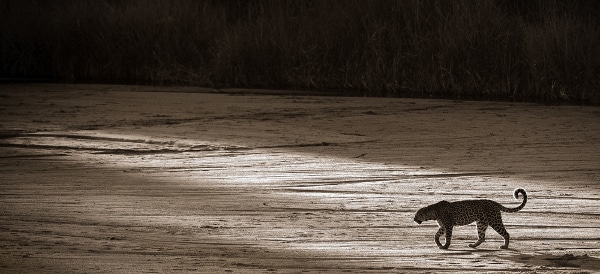
Above: In South Luangwa, a leopard stalks from the shadows across a dry riverbed late in the afternoon.
8. Have you ever fallen short of taking the perfect shot?
All the time; I’ve come to question what exactly a ‘perfect shot’ is. Even when I look at my best images, I can find flaws in them. That’s one of the joys of being a photographer; we are always searching for an image that’s just a little better than the previous one.
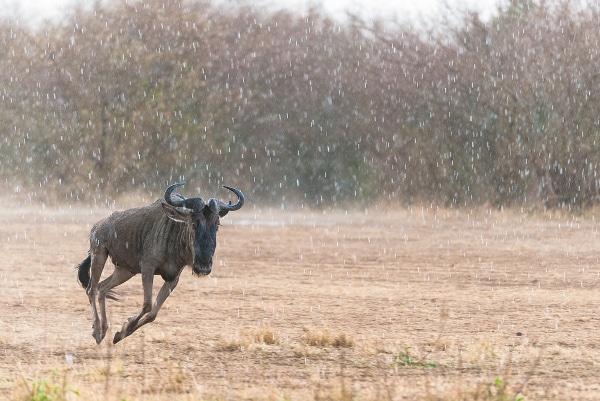
Above: A wildebeest running in the rain.
9. Where is your favourite place to take photographs of wildlife?
Probably dry, arid areas, these environments require you to focus on the little you have around you, thus presenting a greater challenge. Also, when change happens, it happens fast, which is very appealing to me.
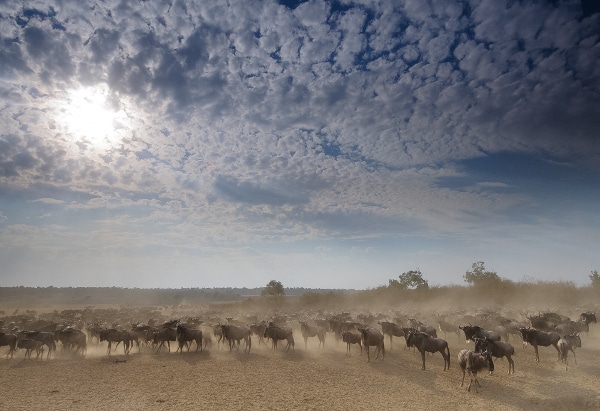
Above: Wildebeest gather in a stampede of dust just before crossing the Mara river.
10. What is your greatest achievement as a photographer thus far?
I’d have to say being able to support myself as a wildlife photographer in a very small market. The international awards are great and they increase exposure to one’s work, but being able to do what I love while being able to live comfortably is an achievement in itself for me.
If you enjoyed Shem’s photographs as much as we did and would like to see some more of his work, take a look at his website.
You can now use an app to identify any tree in Southern Africa
Technology continues to embed itself in all aspects of our lives in ways we never thought possible. It comes as no surprise then that a passionate team headed by Val Thomas have compiled an impressive mobile app that makes it easy for users to identify both indigenous and alien plant species at the touch of a screen.
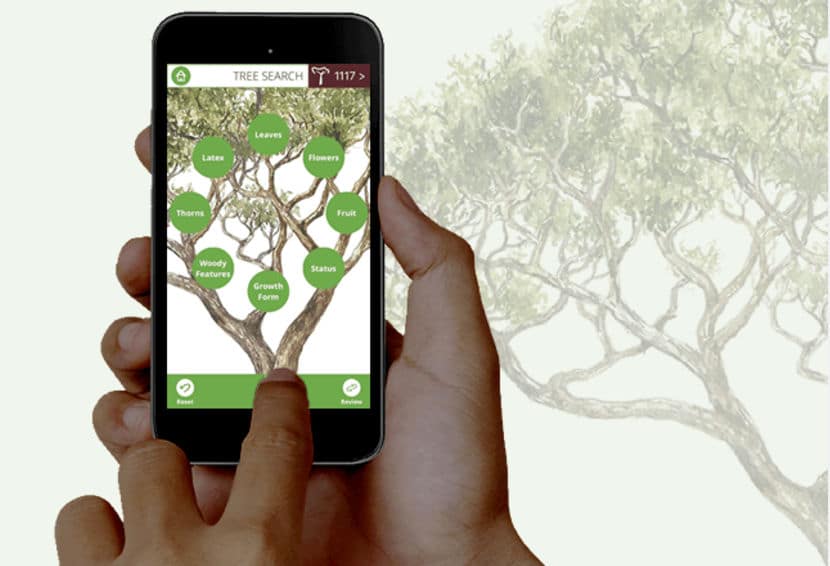
TheTreeApp was launched in South Africa in September 2017
Forget scouring through botanical books and dictionaries, TheTreeApp is a useful and easy-to-use guide to South Africa’s abundant flora.
How does it work?
The App gives the user the ability to identify any tree via an interactive Smart Search procedure Intuitive and interactive technology is compatible with GPS functionality, which makes the search for a specific tree easier, even in the bush. TheTreeApp also comes with a wealth of educational information, maps, and images enabling you to engage with the environment during your safari adventure.
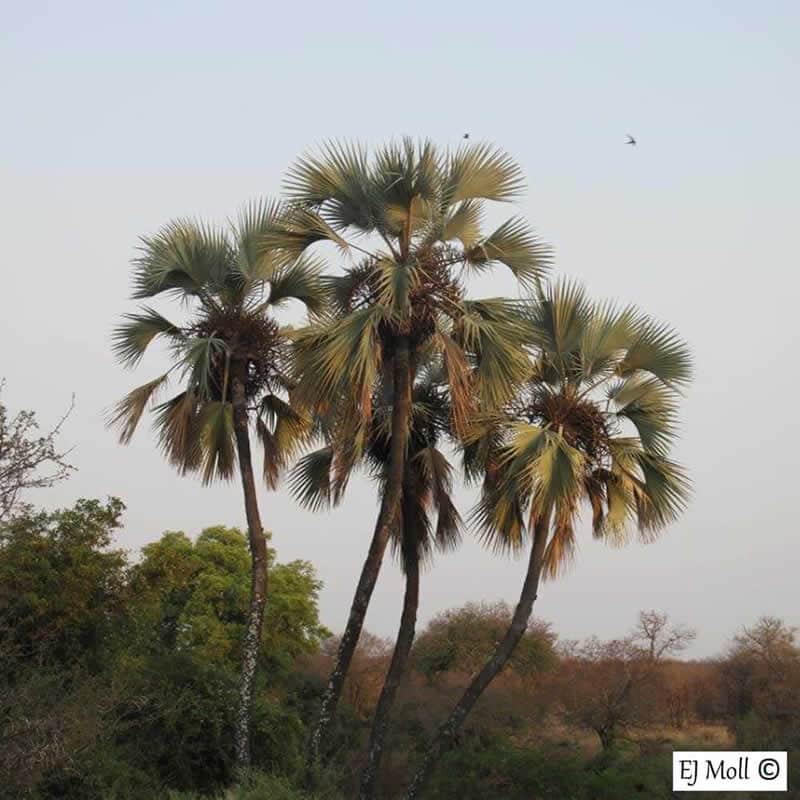
The TreeApp also comes with a wide variety of features such as satellite-interactive distribution maps. You can identify more than 1100 trees using these maps which help propel the App’s GPS function by interacting with GPS satellites. As such, locating certain trees is easier as opposed to the traditional referral or guessing methods.
TheTreeApp also comes with over 2200 images both displayed in pen and watercolour ink drawings painstakingly and lovingly illustrated by Joan Van Gogh and Penny Moraites.
An App for everyone
All information is stored inside TheTreeApp and as such no Wi-Fi is required for identification. It also uses plain English as well as 11 vernacular languages to describe various plant species. While TheTreeApp comes in handy for recreational purposes, it has also been well appreciated along professional circles to identify and locate multiple species of trees in South Africa within a radius of 12.5 kilometers.
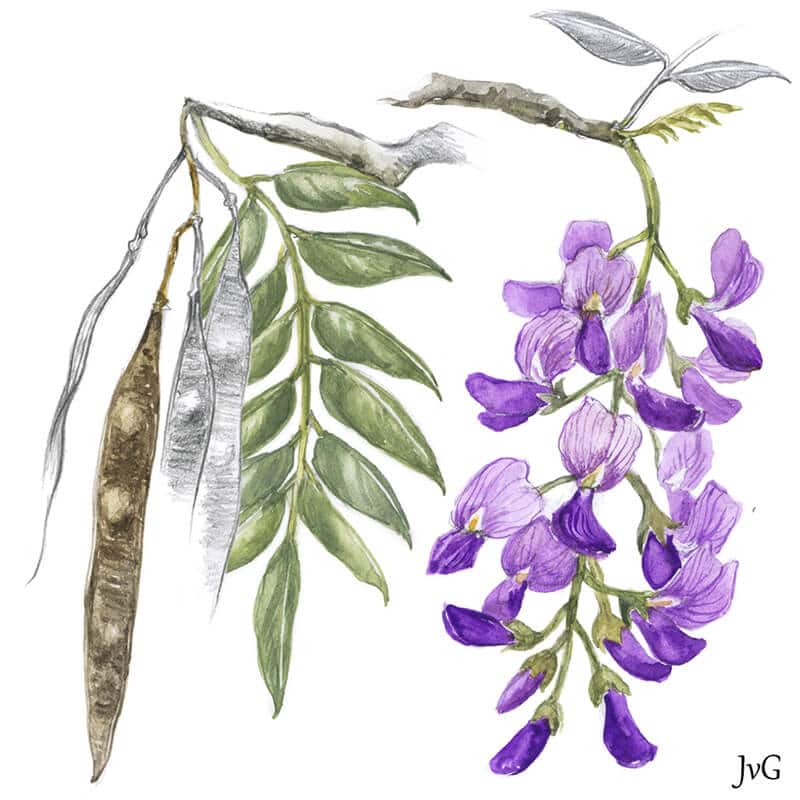
MyTreeApp features beautiful illustrations
Out of the 1,100 tree species listed on TheTreeApp, 990 are indigenous while 136 are either invasive or noninvasive. They also come with distribution maps and a lot of comprehensive data The designers also added Info Hotspots to help you navigate and understand the information inside the App better.
Your favourites
You can also add your favorite trees and their GPS location using the My Tree feature. What's more, you don’t have to be well versed in scientific tree terminology to understand specific names thanks to a 700-word glossary embedded in TheTreeApp. You can also change the language (English/Botanical/Afrikaans) and grouping methods (Genera/Families) in the App’s settings.
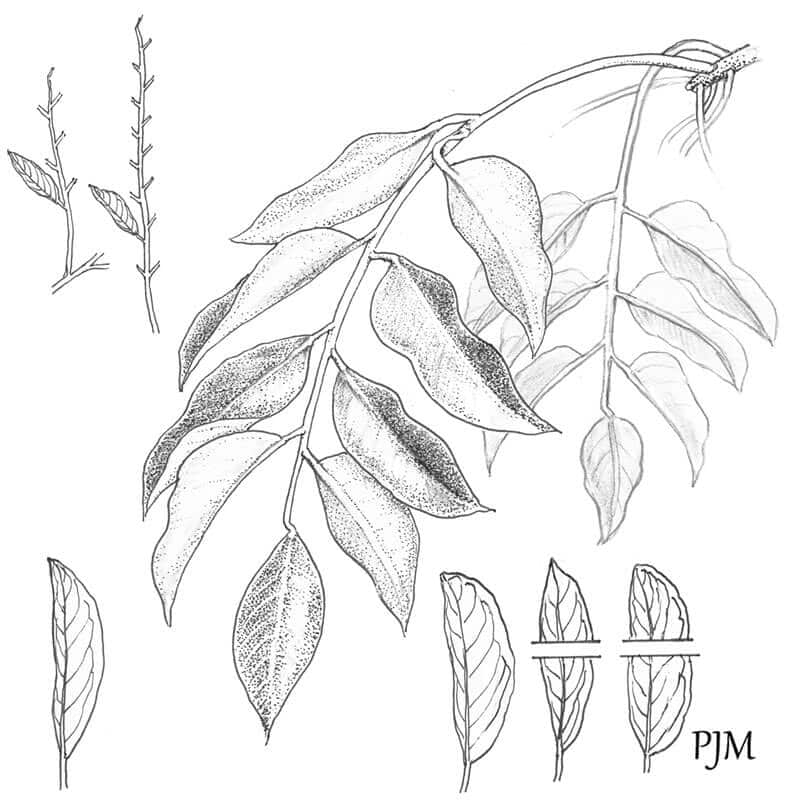
TheTreeApp is a valuable piece of technology that has nature lovers excited about the future for plant identification in the country. At just under $35, the app is incredibly useful for safari enthusiasts looking for learn a little bit more about South Africa’s unique and valuable flora. TheTreeApp is available for Android and Apple users.






![Safari guide of the month [August] | Elia Edward](https://cdn.discoverafrica.com/wp-content/uploads/2021/11/15192049/29196585_10214520432299780_82205162944331776_n.jpg)
